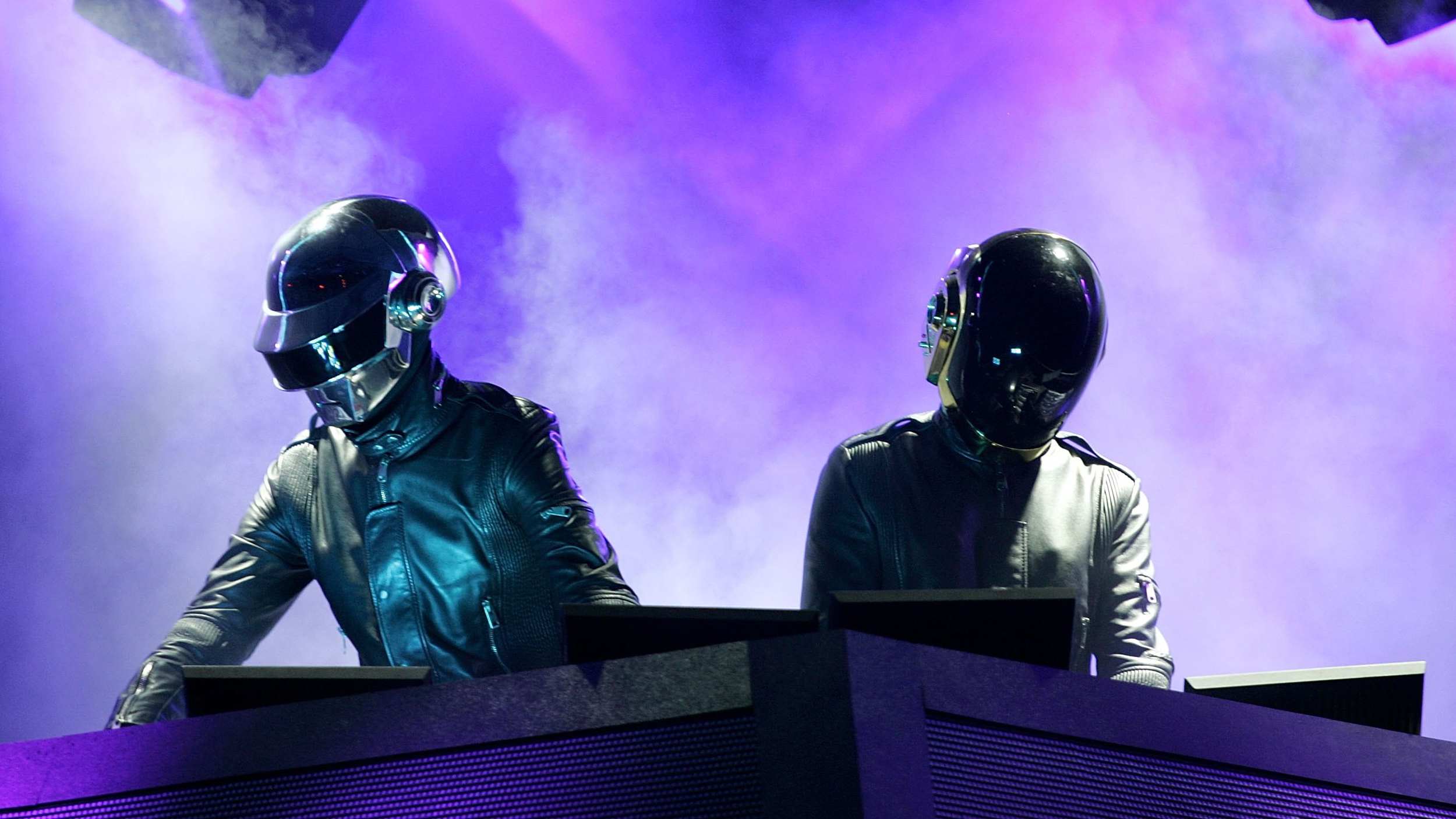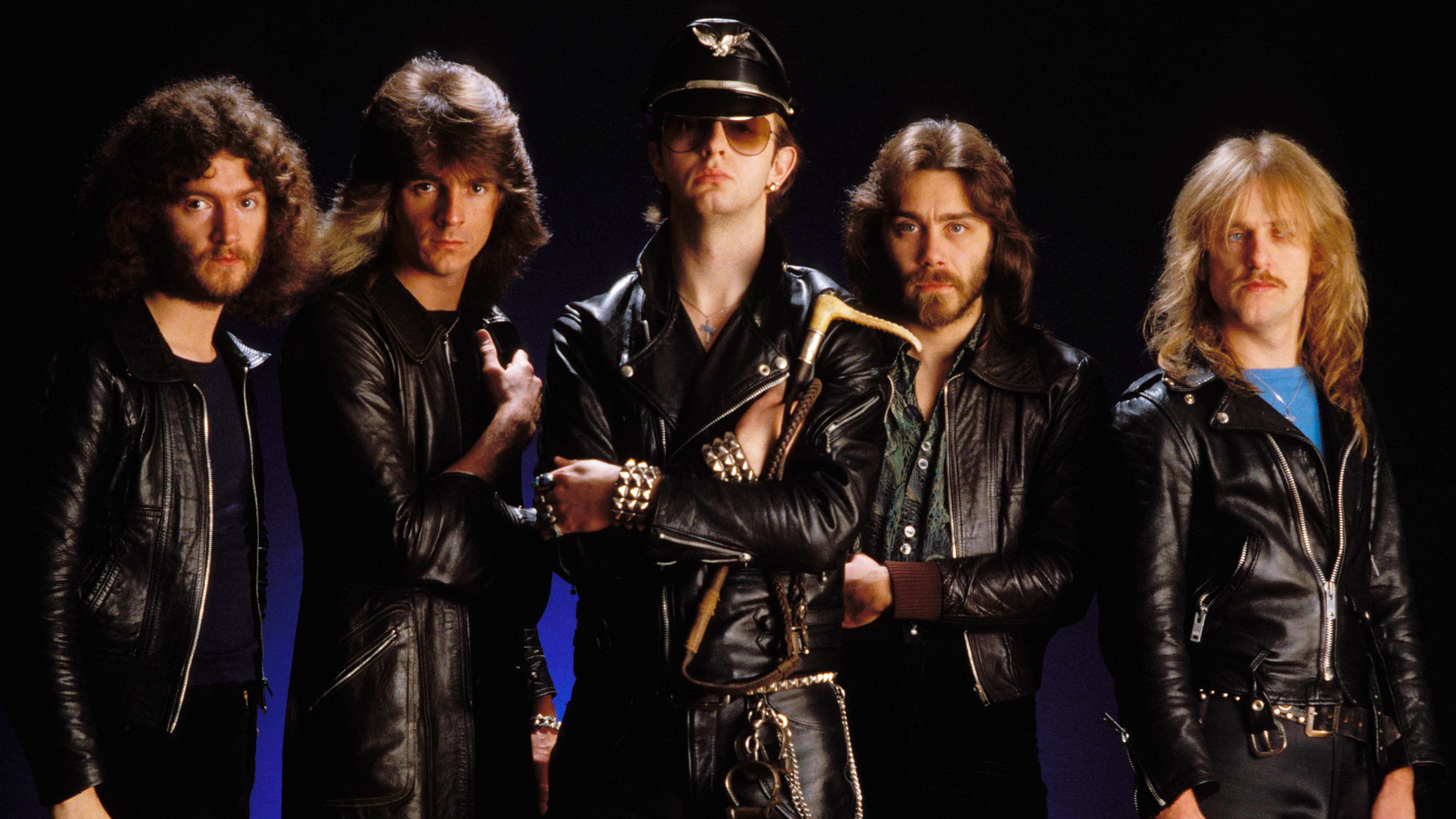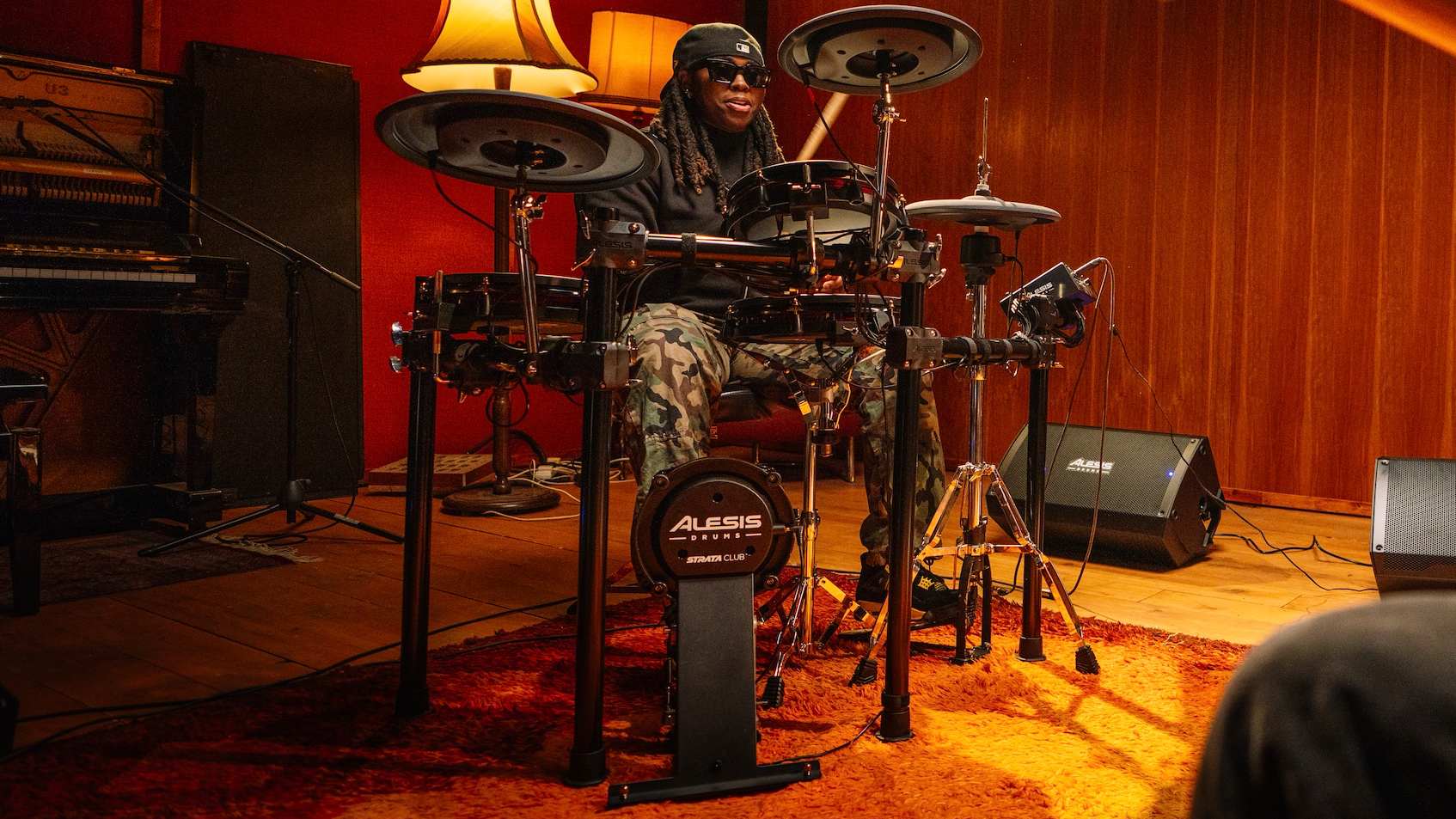
Intro
"Guitar solos are funny things," says Def Leppard axman Phil Collen. "To so many people who pick up the instrument, solos are all they can think about. They dream about the spotlight hitting them and that moment they can go, 'Hey everybody, look at me!' Personally, I've never really thought that way.
Coming from a man who's logged in thousands of such 'Look at me!' moments on stages across the globe, Collen's comments might at first seem a tad hypocritical. But the mega-platinum shred star insists that the mark of a great solo - and, for that matter, a great guitarist - is when "that little bit of time you're given to shine becomes a true part of the song. The second you start to overwhelm what's going on around you, that's when you have to ask yourself, 'Who am I really serving here?'
Collen credits producer Mutt Lange, with whom he worked during much of the 1980s, for instilling the philosophy that music is a team sport, with no room for divas. “Mutt really drove home the point that every part of a song, especially the solo, has to have groove, feel and rhythm. If a solo gets too wacky and complicated, then everything is lost.
“That said, you can still rip and burn and play your ass off,” he says with a laugh. “In fact, that’s what a guitarist is supposed to do. You just have to do it with purpose in mind, and that purpose should always be the song, the band, the creative whole.”
On the following pages, Collen runs down his favourite solos of all time, rippers and burners all. “Even something like Eruption, which I guess you could say is one continuous solo, it’s not this audacious attention-grab - not in my book, at least. It’s a beautiful composition, with feel and spirit and joy.”
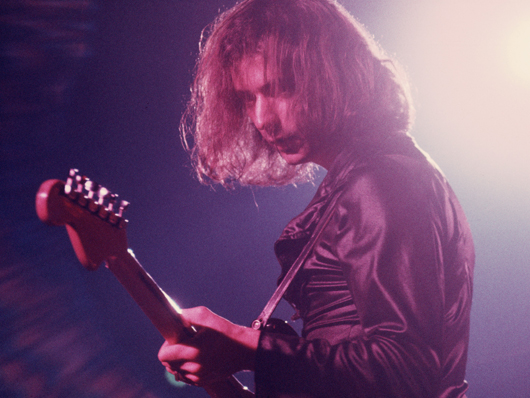
Deep Purple - Highway Star (Ritchie Blackmore)
“This had a huge impact on me, and it was very instrumental in my wanting to pursue the guitar. Actually, it was the first proper solo I learned how to play.
“Listening to it now, the tone is a little too clean for my taste - I prefer a much dirtier sound - but I’m still very impressed by Ritchie Blackmore’s choice of notes. He doesn’t do anything obvious, nor does he play what a lot of guitarists did back then - all those Jimmy Page blues-rock patterns. Of course, I love Jimmy Page, so I’m not knocking him. I’m just saying that Blackmore took things ‘outside.‘ A very unconventional guitarist.
“Blackmore picks each note with total precision, but he plays with unbelievable fire. The man’s rippin’! Even on some of the stuff that’s sort of classical, he’s going for it.”
Listen: Deep Purple - Highway Star (live in Denmark 1972, solo by Ritchie Blackmore)
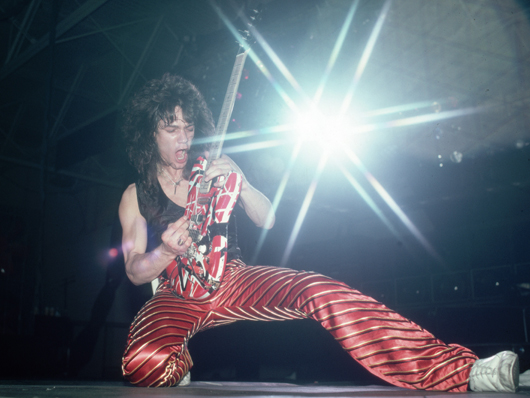
Van Halen - Eruption (Eddie Van Halen)
“It takes a lot to beat this solo. Fire, technique, structure - it’s got everything you could want. Plus, there’s the tapping. Like a lot of people, I’d never heard tapping before Eddie Van Halen did it. What a mind-blower! I was like, ’What’s this guy doing?’ It was revolutionary.
“But the best thing about Eruption is the sense of freedom you feel when you hear it. To this day, it gives me chills. It’s pure rock expression. You don’t sense the thought that went into creating it; it simply exists, like the sun or the moon. When I heard it for the first time, all I could say was, ’Fuck, man. Thank you!’ That’s how good it made me feel… and still does.”
Listen: Van Halen - Eruption (solo by Eddie Van Halen)
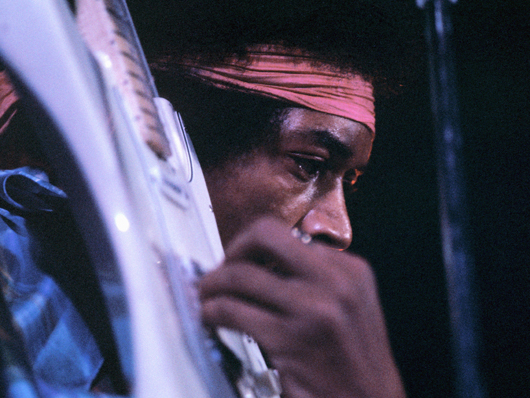
Jimi Hendrix - Ezy Rider
“A posthumous recording, obviously, but man, it’s one of the purest forms of expression I’ve ever heard anybody perform on the electric guitar. Had Jimi lived, I have no doubt he would’ve gotten more daring and crazier with his music.
“Jimi Hendrix is important is so many ways that you can’t even list them all. He‘s absolutely my favourite guitarist, period. What really gets me about his soloing on Ezy Rider is what he does with the wah-wah pedal. While so many players use the wah like it’s a toy or just some cheap sound effect - they stomp on it and just whack their foot up and down randomly - Jimi used it as an artistic tool. It was almost like he was singing through it. You can really hear that on this song. The man was so very gifted.”
Listen: Jimi Hendrix - Ezy Rider
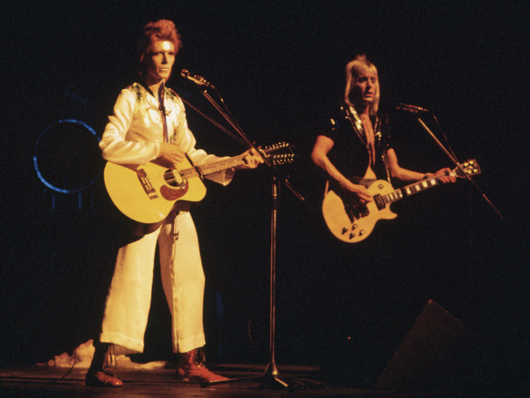
David Bowie - Moonage Daydream (Mick Ronson)
“David Bowie’s always had great taste in guitarists, and he sure had it right when he worked with Mick Ronson. I’m a big vibrato freak. Love vibrato! And wow, this solo, when I was a teenager, it gave me goosebumps. Consequently, I think Mick Ronson’s playing became part of my musical DNA.
“Joe Elliot and I played with Ian Hunter at a benefit concert at the Hammersmith Odean in London a while ago. Mick Ronson’s mother and ex-wife were in the audience, and they started crying when I played the solo to this song. It was a very special moment. For so many reasons, Moonage Daydream and the solo will always be very close to my heart.”
Listen: David Bowie - Moonage Daydream (solo by Mick Ronson)
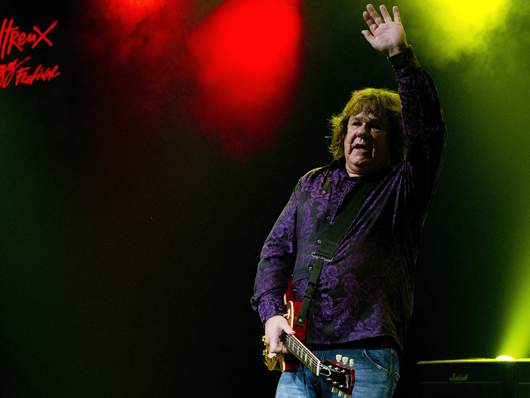
Gary Moore - Cold Day In Hell
“He pretty much crossed the line genre-wise. In his heart, he was all blues, but he could play anything. There’s a studio version [on 1992’s After Hours] of this song that’s great, but his soloing on the live album is the one to hear. His vibrato is staggering, and his overall technique is just full-on.
“What’s really amazing about Gary Moore is that he got that incredible vibrato with heavy-gauge strings. I was fortunate enough to sit in a room with him a few times when he toured with Def Leppard. He had Peter Green’s old Les Paul with him, and he let me play it. I was using .009s at the time, but Gary was using .010s. I had these giant bubble blisters on my fingers after playing the .010s, but I’ve stuck with them.
“The best thing I can say about Gary Moore is what I would say about any great guitarist: you couldn’t copy him. I watched him play from, like, two feet away, trying to figure out how he got his sound, and I was clueless. He was his own man. Listen to Cold Day In Hell and you’ll know why.”
Listen: Gary Moore - Cold Day In Hell
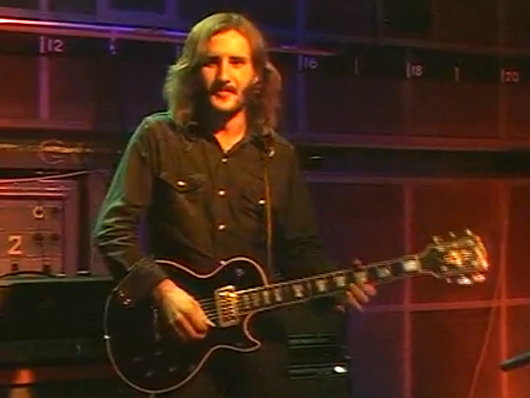
Focus - Hocus Pocus (Jan Akkerman)
“Like Ritchie Blackmore, Jan Akkerman was a freak with the sequence of notes he played. His style was all crazy turns and weaving parts - you could never be sure where he was going to go. I think that really helped make Hocus Pocus so exciting.
"The whole song is kind of insane all the way through, but the solo is just out the door. It’s all in his right hand, the way he picks. Jan plays almost like a jazz guy, picking every note with incredible accuracy. But there’s real emotion in what he does. I know Hocus Pocus was supposed to be a spoof, but I think it's a great song in its own right. It's up to you whether it’s funny or not. In my opinion, it‘s the best thing the band ever did.”
Listen: Focus - Hocus Pocus (solo by Jan Akkerman)

Return To Forever - The Romantic Warrior (Al Di Meola)
“I really learned a lot about picking from Al Di Meola, who does some unbelievable acoustic stuff here. I studied how to play clean by listening to him, and then I took that and rocked it out more.
“He’s so into every note he plays. His speed is fucking awesome, but it’s not a show-off thing - it’s heart and soul, man. After hearing this, I’d practice with a metal pick. I just wanted to hear the sound of the pick hitting the strings [imitates the sound] - ’da-da-da-da-da-da-da-da-da!’”
Listen: Return To Forever - The Romantic Warrior (solo by Al Di Meola)
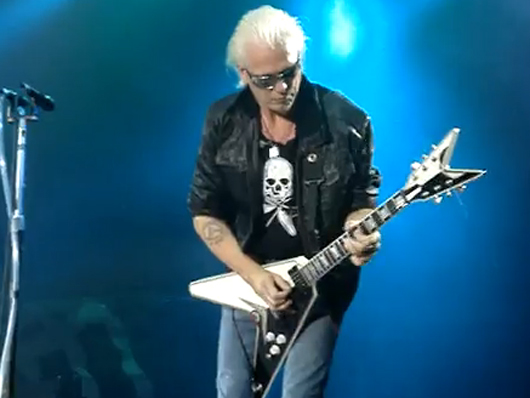
UFO - Hot 'N' Ready (Michael Schenker)
“Vibrato, vibrato, vibrato! Can’t get enough of it. And, of course, there’s that freedom thing I mentioned before. You listen to this solo, and you just know that Michael Schenker is doing his own thing - the mark of any great guitarist.
“The tone is stunning, but to me, tone is all about feel. You could plug Michael Schenker into anything, have him play any guitar, and he’ll still get a sound that sets him apart from everybody else. Heart, soul, feel - they all equal tone. And tone is another way of saying ‘personality.’”
Listen: UFO - Hot 'N' Ready (solo by Michael Schenker)
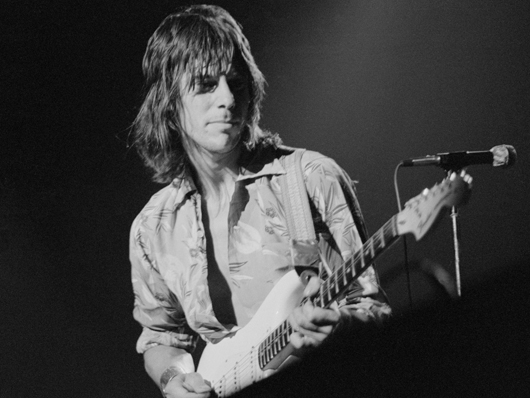
Jeff Beck - The Pump
“Of course, Jeff Beck’s the master of tone and intonation and all-around great playing - he just thinks it and it comes out. But the interesting thing about this solo is, he holds back a little bit; he’s somewhat reserved. It’s a very uncharacteristic performance in that it keeps you guessing.
“There’s a song on the same album called Star Cycle, and it’s a pretty crazy track where he really lets go - a lot of fun. But for some odd reason, I really like what he does on The Pump. It’s nice and mellow and offers you a look into his quirky imagination.”
Listen: Jeff Beck - The Pump
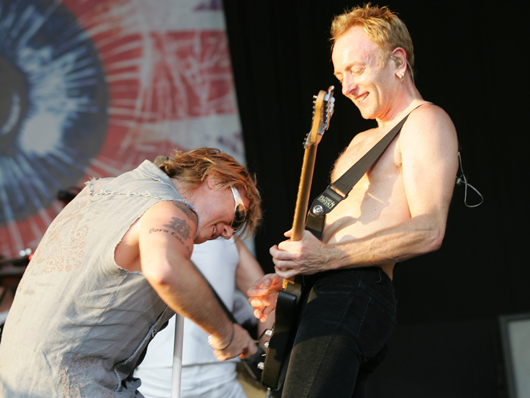
Def Leppard - Paper Sun (Phil Collen)
“I hope I’m not being arrogant by picking one of my own solos - I certainly don’t put myself in the same league of all these other guitarists on the list. But I do love this solo a lot.
“There’s two solos spots on this track: Viv Campbell does the first, and I do the second. Mine actually starts at 4:36 - I wrote it down! [laughs] What can I say? I really like my vibrato, my choice of notes, my tone - all that good stuff. Plus, I do some cool Eddie Van Halen-type shredding, without being self-indulgent. There’s solos I’ve played that have gotten more attention, but I quite like this one.”
Listen: Def Leppard - Paper Sun (second solo by Phil Collen)
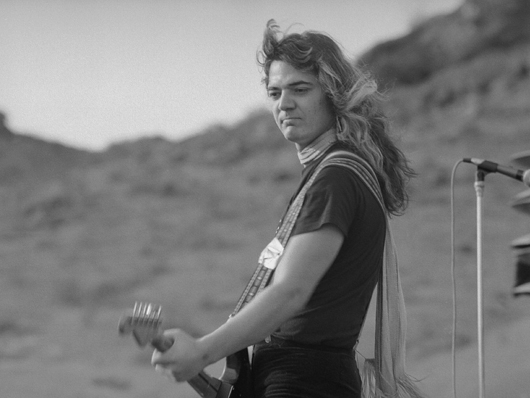
Billy Cobham - Quadrant 4 (Tommy Bolin)
“Billy Cobham's Spectrum is of the first jazz-rock fusion records. It totally turned people's heads around. And Tommy Bolin, who had replaced Ritchie Blackmore in Deep Purple, is an absolute monster on it.
"On the song Quadrant 4, he’s going nuts with the wah-wah, the Echoplex, the whammy bar. God, he’s just making the guitar scream! But what’s super-impressive is how he keeps his licks right in place and never loses the rest of the band.
“The great thing about Tommy Bolin is that he had a wonderful ‘fuck-off-ness’ to his playing. But it wasn’t for the sake of being arrogant; he was just being himself, being free. The guy lived and breathed music, and it’s really sad he died so young. He would have evolved and contributed so much.”
Listen: Billy Cobham - Quadrant 4 (solo by Tommy Bolin)
Connect with MusicRadar: via Twitter, Facebook and YouTube
Get MusicRadar straight to your inbox: Sign up for the free weekly newsletter

Joe is a freelance journalist who has, over the past few decades, interviewed hundreds of guitarists for Guitar World, Guitar Player, MusicRadar and Classic Rock. He is also a former editor of Guitar World, contributing writer for Guitar Aficionado and VP of A&R for Island Records. He’s an enthusiastic guitarist, but he’s nowhere near the likes of the people he interviews. Surprisingly, his skills are more suited to the drums. If you need a drummer for your Beatles tribute band, look him up.
“Instead of labouring over a perfect recreation, we decided to make an expanded counterpart”: Chase Bliss teams up with Mike Piera for Analog Man collab based on the legendary King Of Tone
“It’s about delivering the most in-demand mods straight from the factory”: Fender hot-rods itself as the Player II Modified Series rolls out the upgrades – and it got IDLES to demo them
“Instead of labouring over a perfect recreation, we decided to make an expanded counterpart”: Chase Bliss teams up with Mike Piera for Analog Man collab based on the legendary King Of Tone
“It’s about delivering the most in-demand mods straight from the factory”: Fender hot-rods itself as the Player II Modified Series rolls out the upgrades – and it got IDLES to demo them


